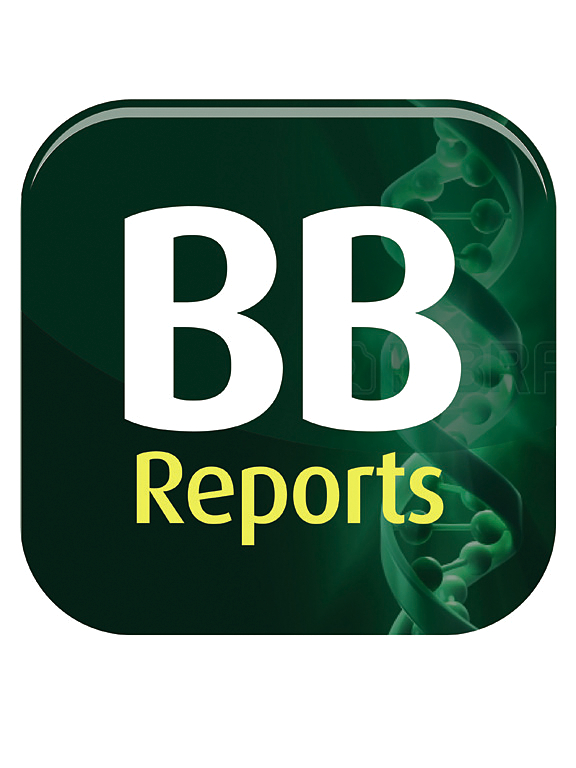KLF14 通过 FOSL1 抑制胶质瘤的肿瘤进展
IF 2.3
Q3 BIOCHEMISTRY & MOLECULAR BIOLOGY
引用次数: 0
摘要
背景神经胶质瘤是最常见的中枢神经系统恶性肿瘤,通常由 Fos 样抗原 1(FOSL1)的过度表达引起。然而,FOSL1 的调控机制仍未被探索。本研究旨在探讨 FOSL1 的调控机制,以确定胶质母细胞瘤的潜在治疗靶点。方法本研究的初步调查利用双荧光素酶报告基因测定和定量聚合酶链反应(qPCR)测定,确定克鲁珀尔样因子 14(KLF14)抑制 FOSL1 的转录。随后对胶质瘤组织进行的免疫组化和免疫印迹(WB)检测证实了 FOSL1 与 KLF14 之间的负相关。本研究生成了 KLF14 敲除细胞以及 KLF14 和 FOSL1 双敲除细胞,并通过各种实验方法进一步评估了细胞的生长情况。通过 qPCR 和 WB 检测确定了 KLF14 通过 FOSL1 对肿瘤细胞迁移的影响。结果本研究表明,在胶质瘤组织中,KLF14抑制FOSL1的转录,并与FOSL1成反比。研究发现,KLF14的过表达能抵消FOSL1对胶质瘤细胞迁移和上皮细胞向间质转化的影响,这与Snail2和分化簇44(CD44)表达的减少相吻合。结论本研究强调了在胶质母细胞瘤中 FOSL1 受 KLF14 的负调控,并表明 KLF14 的过表达可通过抑制 FOSL1 来缓解肿瘤生长,从而确定 KLF14 是治疗胶质母细胞瘤的新型分子靶点。进一步研究KLF14和FOSL1在不同应激条件下的相互作用和调控动态,可以提高胶质母细胞瘤治疗的精确性。本文章由计算机程序翻译,如有差异,请以英文原文为准。
KLF14 inhibits tumor progression via FOSL1 in glioma
Background
Glioma, the most frequent central nervous system malignancy, is often promoted by the overexpression of Fos-like antigen 1 (FOSL1). However, the regulation of FOSL1 remains unexplored. The present study aimed to investigate the regulatory mechanism of FOSL1 to identify potential therapeutic targets for glioblastoma.
Methods
This study's initial investigation utilized dual-luciferase reporter gene assays and quantitative polymerase chain reaction (qPCR) assays to establish that Kruppel-like factor 14 (KLF14) inhibits the transcription of FOSL1. Subsequent immunohistochemistry and western blotting (WB) assays on glioma tissues confirmed a negative association between FOSL1 and KLF14. This study generated KLF14 knockdown cells and double knockdown cells of KLF14 and FOSL1 and further assessed cell growth through various experimental methods. The impact of KLF14 on tumor cell migration via FOSL1 was determined using qPCR and WB assays. A xenograft tumor model was utilized to verify tumor growth suppression by KLF14.
Results
The present study demonstrated that KLF14 restrains FOSL1 transcription and is inversely correlated with FOSL1 in glioma tissues. KLF14 overexpression was found to counteract FOSL1's effect on cell migration and epithelial-to-mesenchymal transition in glioma cells, which coincided with decreased Snail2 and cluster of differentiation 44 (CD44) expressions. Further, KLF14 overexpression was shown to hinder tumor progression in vivo.
Conclusion
This study highlights that FOSL1 is negatively regulated by KLF14 in glioblastoma and suggests that KLF14 overexpression can mitigate tumor growth by inhibiting FOSL1, thus identifying KLF14 as a novel molecular target for treating glioblastoma. Further research into the interplay and regulatory dynamics between KLF14 and FOSL1 under varying stress conditions can enhance the precision of glioblastoma treatment.
求助全文
通过发布文献求助,成功后即可免费获取论文全文。
去求助
来源期刊

Biochemistry and Biophysics Reports
Biochemistry, Genetics and Molecular Biology-Biophysics
CiteScore
4.60
自引率
0.00%
发文量
191
审稿时长
59 days
期刊介绍:
Open access, online only, peer-reviewed international journal in the Life Sciences, established in 2014 Biochemistry and Biophysics Reports (BB Reports) publishes original research in all aspects of Biochemistry, Biophysics and related areas like Molecular and Cell Biology. BB Reports welcomes solid though more preliminary, descriptive and small scale results if they have the potential to stimulate and/or contribute to future research, leading to new insights or hypothesis. Primary criteria for acceptance is that the work is original, scientifically and technically sound and provides valuable knowledge to life sciences research. We strongly believe all results deserve to be published and documented for the advancement of science. BB Reports specifically appreciates receiving reports on: Negative results, Replication studies, Reanalysis of previous datasets.
 求助内容:
求助内容: 应助结果提醒方式:
应助结果提醒方式:


